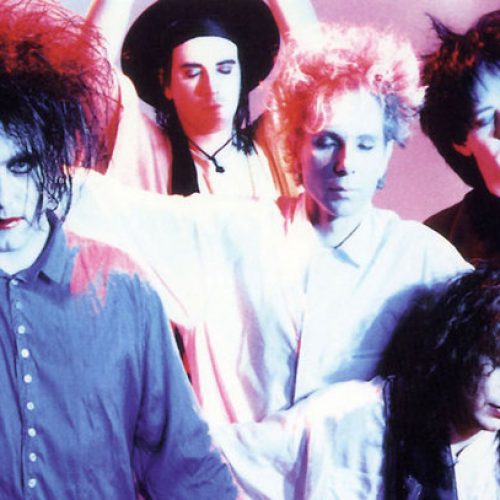Try not to panic, but we’re going to talk a little bit about classic poetry.
I know, I know, you left all that behind in high school for a reason, and the last thing you want to do today is pore over dusty old texts trying to find that elusive unstressed vowel. I promise you though, this is going to be fun – I mean, we’re also talking about rock music.
Plus, if in five minutes I haven’t convinced you of the literary power of New Wave, then this will all be over and you can just walk away. Are you with me? Then let’s begin.
In 1869, poet Charles Baudelaire released “The Eyes of The Poor”. It is 553 words from start to finish, and begins like this:
Oh! You want to know why I hate you today. It will undoubtedly be less easy for you to understand than it will be for me to explain, for you are, I believe, the most beautiful example of feminine impermeability one could ever encounter.
In 1987, The Cure released “How Beautiful You Are”. It is 221 words from start to finish (much less if you remove the repetition) and begins like this:
You want to know why I hate you? Well, I’ll try and explain
You remember that day in Paris, when we wandered through the rain
Don’t worry, I’m not about to compare them. The two are very different mediums, with different intended audiences and rules, and anyway, The Cure’s retelling could not exist without Baudelaire’s original. With that said, although both are brilliant, there’s no denying that one is slightly more accessible than the other.
The Cure used a catchy pop song to create a way into classic poetry for those who might never have engaged with it otherwise. Even those who listened to “How Beautiful You Are” without realising it was based on a poem benefitted – they got to hear a beautiful story with a difficult but important lesson, that otherwise would have gone unread on the shelf of an academic library.
This isn’t about high culture versus low culture, this is about a great story getting the recognition it deserves.
The thing is, The Cure aren’t the only band to have ever based a song on a pre-existing work; they’re not even the first to have been inspired by something highbrow. Everyone from Iron Maiden to DeadMaus5 have written about Aldous Huxley’s Brave New World, and even Guns N’ Roses wrote about Catcher In The Rye once.
What sets The Cure apart is the songwriting. It condenses the story and makes it easy to follow along, sure, but in the simplification, nothing is lost. The lyrics are still flowery, still laden with imagery, there are still phrases that seem grandiose and even a little pretentious. What makes Baudelaire’s poem a classic isn’t dumbed-down to make things more radio-ready, it’s still there, only streamlined.
“How Beautiful You Are” might be a pop song, but the lyrics are still poetry.
So what’s the story? And, more importantly, how do Robert Smith and co tell it so well? Essentially the story talks about a couple on a romantic getaway to Paris, who stumble on a homeless father and his two children. All three are so obsessed with the beautiful girlfriend of the poet (or in this case, a very lucky Robert Smith) that they can’t stop staring – and poet/Robert can’t help but feel ashamed of the glamorous life they get to live.
The twist is this: the story isn’t about the homeless people at all, but what they force the couple to realise. Robert Baudelaire is sure that the woman he is with must feel the same, because they’re in love, and know each other better than anyone else. However, when the woman turns to look at him, she just asks him to shoo the homeless people away.
Gutting right? And kind of a heavy story besides.
But although Through The Eyes Of The Poor is definitely a tragic poem, “How Beautiful You Are” doesn’t feel like that at all. The message is hidden in jangly guitars and layers and layers of synth, even the most heartbreaking lines are delivered with so much whimsy that they don’t hit you until well after the song has ended.
Instead of a drawn-out monologue, Robert begins the song by all but screaming “You want to know why I hate you?” at the listener, but it doesn’t sound like a question. We’re hooked, unable to leave, forced to question our own privilege and the distance between ourselves and every other human on Earth, all while the drum machine ticks along merrily in the background.
You don’t realise there’s a moral until it’s too late, which only makes it hit you harder.
Plus, it’s so beautiful that you hardly even care about the literary history you’re being spoon-fed. The Paris in the song is irresistible – when Robert Smith is warbling about buildings of “glittering glass and burning light”, why would you want to go anywhere else? When he transforms the words of the children into words that, y’know, children would actually say, the “How beautiful! She shimmers like a star!” slugs you in the chest like a ton of bricks.
The songwriting takes a classic poem and turns it into something you want to listen to again and again. The distance between listener and subject is eliminated in the earnest vocals and simple prose, and that only makes the message harder to escape. All that to say:
Punk can be educational, and poetry can be punk. Still don’t believe me? Just look at John Cooper Clarke!








One Response
i always loved this song… great article!!!